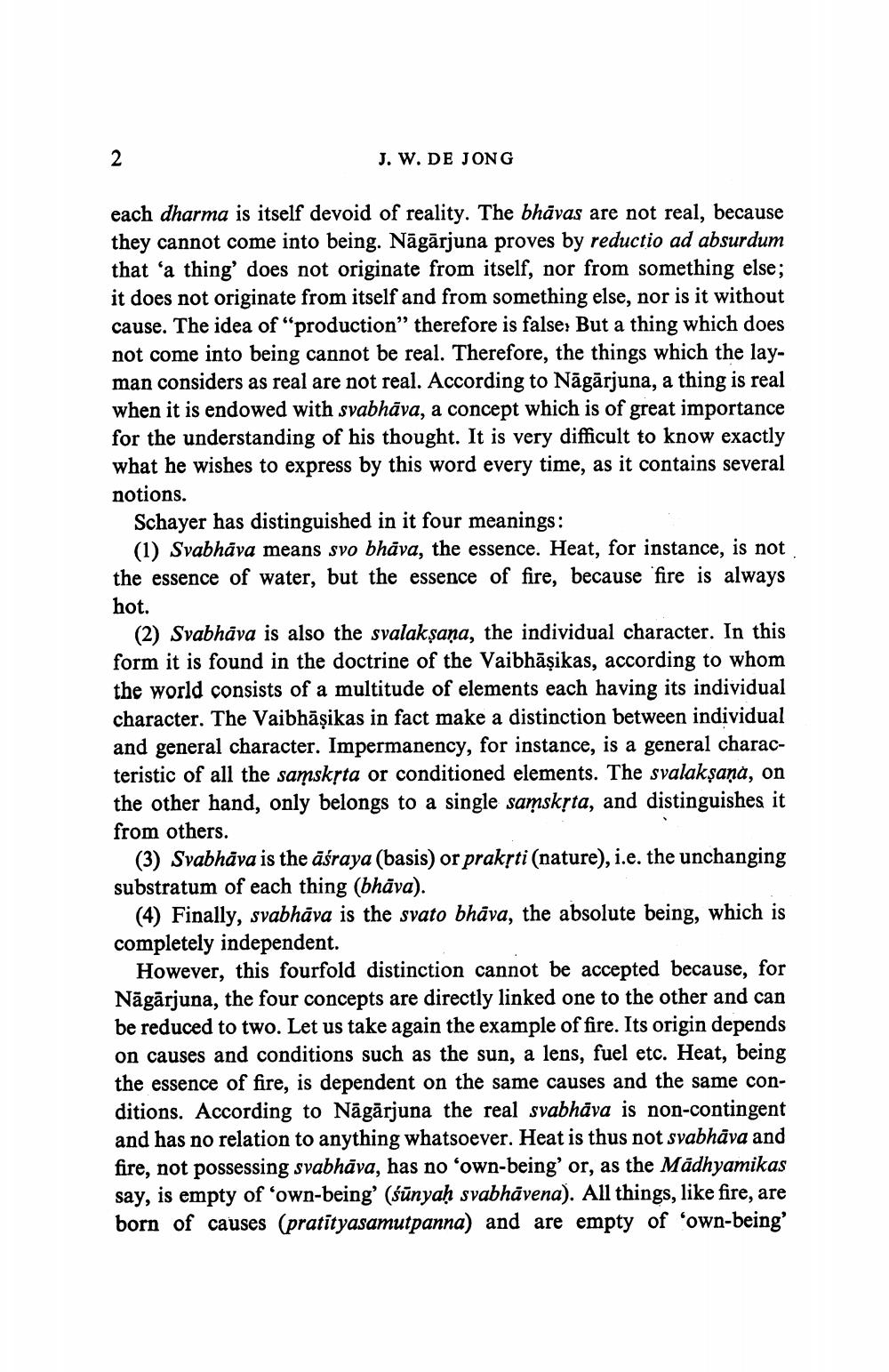Book Title: Problem Of Absolute In Madhyamaka School Author(s): J W De Jong Publisher: J W De Jong View full book textPage 2
________________ J. W. DE JONG each dharma is itself devoid of reality. The bhāvas are not real, because they cannot come into being. Nāgārjuna proves by reductio ad absurdum that 'a thing' does not originate from itself, nor from something else; it does not originate from itself and from something else, nor is it without cause. The idea of production" therefore is false. But a thing which does not come into being cannot be real. Therefore, the things which the layman considers as real are not real. According to Nāgārjuna, a thing is real when it is endowed with svabhāva, a concept which is of great importance for the understanding of his thought. It is very difficult to know exactly what he wishes to express by this word every time, as it contains several notions. Schayer has distinguished in it four meanings: (1) Svabhāva means svo bhāva, the essence. Heat, for instance, is not the essence of water, but the essence of fire, because fire is always hot. (2) Syabhāva is also the svalakṣaṇa, the individual character. In this form it is found in the doctrine of the Vaibhāşikas, according to whom the world consists of a multitude of elements each having its individua acter. The Vaibhāsikas in fact make a distinction between individual nd general character. Impermanency, for instance, is a general characteristic of all the samsksta or conditioned elements. The svalakşaņa, on the other hand, only belongs to a single samskrta, and distinguishes it from others. (3) Svabhāva is the aśraya (basis) or praksti (nature), i.e. the unchanging substratum of each thing (bhava). (4) Finally, svabhāva is the svato bhāva, the absolute being, which is completely independent. However, this fourfold distinction cannot be accepted because, for Nāgārjuna, the four concepts are directly linked one to the other and can be reduced to two. Let us take again the example of fire. Its origin depends on causes and conditions such as the sun, a lens, fuel etc. Heat, being the essence of fire, is dependent on the same causes and the same conditions. According to Nāgārjuna the real svabhāva is non-contingent and has no relation to anything whatsoever. Heat is thus not svabhāva and fire, not possessing svabhāva, has no ‘own-being' or, as the Mädhyamikas say, is empty of ‘own-being' (śūnyaḥ svabhāvena). All things, like fire, are born of causes (pratītyasamutpanna) and are empty of ‘own-being'Page Navigation
1 2 3 4 5 6
